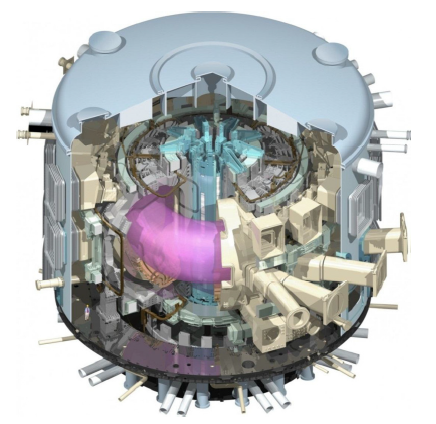ITER is a global collaboration formed to test the feasibility of fusion as a potential large-scale commercial energy source for the future. Fusion is the process the sun uses to create heat and light. It produces no carbon emissions and no air pollution. With hydrogen being the fuel for a fusion-based reactor, it would have the potential to provide a much-needed source of virtually unlimited clean energy.
Click Here for a Model Overview

As a means of testing this source, ITER is currently building the world’s largest tokamak device, which will house the fusion reaction. The completed device will be located in Cadarache, France. It is meant to achieve one over-arching scientific goal: deliver ten times the amount of power that it consumes. It will demonstrate that it is possible to capture fusion energy for commercial use. In comparison to nuclear power plants, the tokamak structure itself also provides benefits in terms of safety. The tokamak cannot explode and does not leak or have poisonous, dangerous by-products. It can be safely shut down if an accident occurs, as long as the heat of the system is contained.
For Current Project Status, Click Here
DCS will never share your information with a third party or add you to a mailing list without permission. Read our privacy policy to learn more about how DCS protects your information.